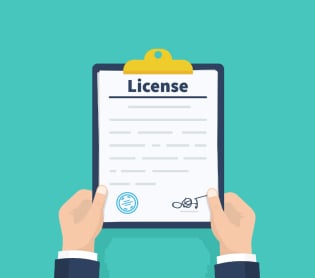

Physical therapists are licensed in the state of their residence, which mandates individuals to complete relevant education and then fulfill examination or endorsement requirements. California, the nation’s third-largest state, accepts physical therapists who have achieved licensure within that state as well as others previously licensed in a different jurisdiction. Although the PT Compact License does not yet include California, it may join its fellow states in this reciprocal program in the future. Until then, licensed physical therapists who move from another state for PT jobs in CA or traveling practitioners who take a contract there can take advantage of the state’s Physical Therapy Board’s endorsement program to become licensed there.
The PT Compact, which has already been accept by 24 states through passed legislation, enables practitioners to practice not only in their own state but in any of the other 23 states without having to repeat lengthy licensing requirements. Physical therapists who have active and unencumbered licenses can apply for privileges in PT Compact member states by paying a simple fee and taking any legal exams the reciprocal state requires. As of January 2019, the PT Compact is active in nine states, with an additional 12 states waiting to come online. In addition, three other states have introduced legislation to join the Compact. The Compact’s goal is to eventually achieve acceptance in all US states and territories, including enacting the PT Compact License California doesn’t yet offer.
The Physical Therapy Board of California requires some of the most stringent qualifications in the nation before an applicant can enter PT jobs in CA. First, applicants must open a Federation account, which features a profile that lists the requirements and related steps to take during the process. Some of the requirements include fingerprinting and education verification of a CAPTE-accredited program. Further, applicants must share information related to any criminal history or military service and render an application within 90 days of graduation. Next, applicants must take and pass the 250-question National Physical Therapy Examination. After successful completion, the physical therapist may begin working as a licensed healthcare professional.
For physical therapists already licensed in other jurisdictions, applying for a California PT license relies on verification of licenses earned in other states plus passing a CAL-Law program and its affiliated examination. The process also requires employment verification, fingerprinting, a check on military status, and examination of any disciplinary actions associated with out-of-state licenses. This process lasts approximately 45 days and culminates in licensure unless any deficiencies are found. Should California join the PT Compact in the future, that length of time will shorten considerably?

California is home to more licensed physical therapists than any other state. The state’s 20,450 physical therapists populate many large medical facilities in cities large and small throughout the state. Even with that many permanent therapists, unfilled PT jobs in CA are widely available to travel professionals. AMN Healthcare reimburses PT Compact costs for traveling therapists who register in a new state. For states like California that aren’t yet in the PT Compact, your AMN Healthcare recruiter can help you understand licensing requirements and even work through most of the process on your behalf.
When you’re ready to accept travel jobs in California or anywhere else in the nation, contact AMN Healthcare to start the process. In just a short time, you can begin reaping the benefits of PT jobs in California with generous healthcare plans, access to retirement plans, travel reimbursements, paid to house, and lucrative income.